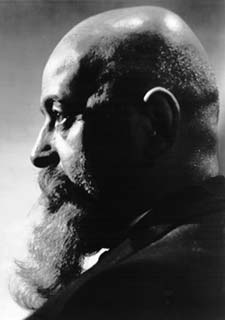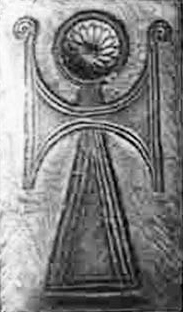Fourth Way Perspectives
Gurdjieff, Sufism & Mohammed
 Ever since Mr. Gurdjieff's death, sufis have claimed him as one of theirs. Either that or claimed that the teaching he brought is really Sufism in disguise. Parallels between Sufism and the ancient teaching of The Fourth Way can be pointed out, of course, certain of his dances, music and perhaps some practices. No one reading the first two series of his Legominism, All & Everything, could doubt his familiarity with and respect for Mohammed, Islam and Sufism. But does that make Gurdjieff a Sufi?
Ever since Mr. Gurdjieff's death, sufis have claimed him as one of theirs. Either that or claimed that the teaching he brought is really Sufism in disguise. Parallels between Sufism and the ancient teaching of The Fourth Way can be pointed out, of course, certain of his dances, music and perhaps some practices. No one reading the first two series of his Legominism, All & Everything, could doubt his familiarity with and respect for Mohammed, Islam and Sufism. But does that make Gurdjieff a Sufi?
Gurdjieff is a Christian. But not of contemporary vintage. He often made fun of contemporary Christianity. The Orthodox, he said, had retained at least something, but Roman Catholicism had degenerated entirely. He held that Jesus Christ was not the only divine messenger to the planet, which would of course exempt Gurdjieff's adhering to the Nicene Creed. Still, in even a casual look at his life, his 'Christianity' is so obvious as make one wonder why it would remain a question. Gurdjieff was baptized a Christian, educated by Russian Orthodox priests and at his death services were conducted at his request in the Russian Orthodox Church in Paris by a Russian priest.
Gurdjieff's Vision of Christianity

Four months after finally succeeding in opening his Institute for the Harmonious Development of Man, he declared, "The program of the Institute, the power of the Institute, the aim of the Institute, the possibilities of the Institute can be expressed in a few words: the Institute can help one to be able to be a Christian." [Emphasis added] He went on to say, "Christianity says precisely this, to love all men. But this is impossible. At the same time it is quite true that it is necessary to love. First one must be able, only then can one love. Unfortunately, with time, modern Christians have adopted the second half, to love, and lost view of the first, the religion [of being able to do], which should have preceded it."
He then added, "Half the world is Christian, the other half has other religions. For me, sensible man, this makes no difference; they are the same as the Christian. Therefore it is possible to say that the whole world is Christian, the difference is only in name. And it has been Christian not only for one year but for thousands of years. There were Christians long before the advent of Christianity." [Emphasis added]
This last statement accords with what P. D. Ouspensky reports Gurdjieff said in Russia some seven years before. When asked what is the origin of The Fourth Way, Gurdjieff said that to understand what is meant by the term Christianity one would have to "talk a great deal and to talk for a long time." Then he declared: "But for the benefit of those who know already [that is, know what he means when he says 'Christianity'] I will say that, if you like, this is esoteric Christianity." [Emphasis original]
Later on, Ouspensky reports Gurdjieff saying:
It will seem strange to many people when I say that this prehistoric Egypt was Christian many thousands of years before the birth of Christ, that is to say, that its religion was composed of the same principles and ideas that constitute true Christianity.... The Christian church, the Christian form of worship, was not invented by the fathers of the church. It was all taken in a ready-made form from Egypt, only not from the Egypt we know but from one which we do not know. This Egypt was in the same place as the other but it existed much earlier.
What isn't commonly understood, though the clues are there in Search, Beelzebub's Tales to His Grandson and Meetings with Remarkable Men, is that Gurdjieff discovered the teaching of The Fourth Way in Egypt and Ethiopia (Abyssinia). That was his first journey. His second was to rediscover, reassemble and reformulate elements of the original prehistoric teaching of Christianity—existing in Egypt before 3,000 B.C.E.—that over time had moved northward with Pythagoras and into Central Asia.
Bennett's Bias
One of the advocates for the notion that Gurdjieff's teaching is based on Sufism is J. G. Bennett. In his Making a New World, an otherwise interesting study of Gurdjieff and his teaching, Bennett clearly overlooks the importance of Gurdjieff's connection with Egypt while greatly emphasizing that of Central Asia. But he does write:
We know that the Eastern churches have admirable spiritual exercises, some of which Gurdjieff taught his own pupils. He refers to a journey to Abyssinia with Professor Skridlov. He stayed for three months in Abyssinia where he followed up indications he had found in Egypt of the importance of the Coptic tradition. At the end of his life, I more than once heard him speak of Abyssinia, even referring to it as his 'second home,' where he hoped to retire and finish his days. He also mentioned the special knowledge of Christian origins possessed by the Coptic Church that had been lost by the Orthodox and Catholic branches of Christianity.
So, like a good bit of what has happened to the Work since Gurdjieff's death, the Work has largely brought this confusion upon itself. The recent new edition of Ouspensky's Search shows on the cover a Sufi in a turban. This is congruent with covers of Gurdjieff books which show either Arabic writing or Persian rugs. This denial of the origins of Gurdjieff's Fourth Way, intentional or otherwise, now, with a historical clash between Judaeo-Christianity and Islam coming to the fore, must be righted if Gurdjieff and the teaching are not to suffer by association.
Thus, with the understanding that Gurdjieff is a true Christian and that the Fourth Way is an ancient teaching rooted in prehistoric Egypt—and therefore, being the original source teaching for all subsequent teachings—let us look at Gurdjieff's connection with Islam and Sufism.